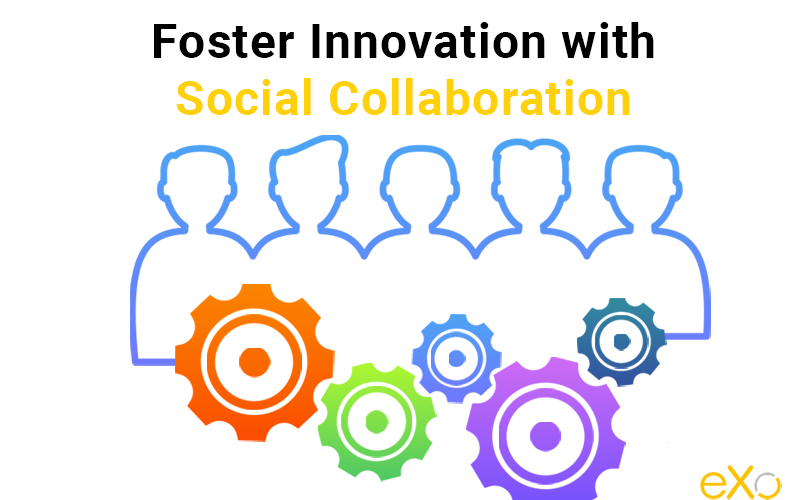- Veronika Mazour
- May 20, 2015
How Social Collaboration Fosters Innovation

Content
Social collaboration fosters innovation in three key ways: empowering individuals, enabling company-wide interaction, and crowdsourcing.
1. Empower individual innovation through social tools
Social tools are important components in helping organizations innovate because they empower anyone to share and develop ideas. According to The Institute for Corporate Productivity (i4cp), technology-enabled collaboration/social business tools are essential in building an innovative workforce.
Social tools allow companies to get ideas from unexpected sources. Frontline staff, for example, is often an excellent source for product ideas and tweaks, but are routinely forgotten in the product development process. Imagine an activity stream that alerts a frontline sales person on a new product in development that is aimed at a customer segment she knows well: she can now chip in with an idea that the product team would not have been able to come up with because they don’t interact with the target audience on a daily basis. For instance, if your business specializes in weight management and prescriptions like Wegovy, no one will understand the target audience, people trying to lose weight, better than the customer support, as they are the one interacting with the clients all the time.
2. Foster innovation by enabling company-wide interactio
3. Build an ideation engine through crowdsourcing
Of course social collaboration tools alone won’t turn your company into an innovation powerhouse. You need to purposefully create cross-functional teams and have processes in place on how you source and develop ideas. Some organizations have, for example, internal community managers who facilitate serendipitous encounters (serendipity is often a key ingredient in innovation). Others have built whole platforms and processes that enable staff to come up with innovative ideas. IBM, for example, has created an in-house crowdsourcing platform so that they ensure they utilize all the knowledge and creativity in the company.
discover all the features and benefits
- Tags: Collaboration
Related posts
- All
- eXo
- Digital workplace
- Employee engagement
- Open source
- Future of work
- Internal communication
- Collaboration
- News
- intranet
- workplace
- Knowledge management
- Employee experience
- Employee productivity
- onboarding
- Employee recognition
- Change management
- Cartoon
- Digital transformation
- Infographic
- Remote work
- Industry trends
- Product News
- Thought leadership
- Tips & Tricks
- Tutorial
- Uncategorized
Leave a Reply
( Your e-mail address will not be published)


